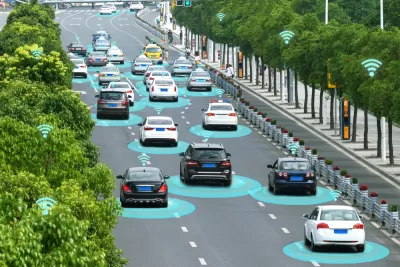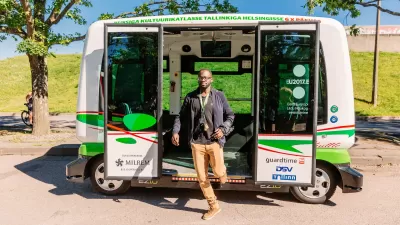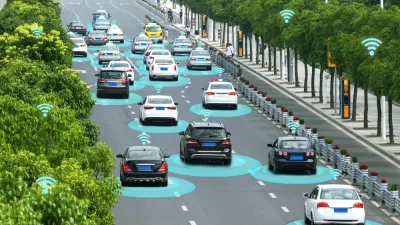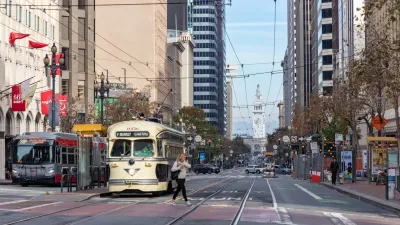Autonomous vehicles have many evangelists, but perhaps they need more skeptics.

Christian Wolmar writes a skeptical response to the rapid adoption of self-driving car enthusiasm by politicians, the public, and the journalists whose job it is to be skeptical of silver bullets.
If the more extreme claims were to be believed, we would already be adapting to the new reality of driverless cars. And what a reality it is supposed to be. We are told by the likes of Uber and Waymo, Google’s autonomous vehicles wing, that we will forego our individual cars for the delights of being transported in driver-less, shared-use electric vehicles reminiscent of the new dockless hire bikes or car–sharing companies like Zipcar. This is a strange conflation of three separate revolutions, electric, shared use and driverless, each of which on its own would have enormous societal impact and yet are presented by the tech companies and some politicians as desirable and inevitable. In truth, all three concepts are fraught with obstacles, not least the shortage of battery capacity in the world, people’s natural desire to own their own vehicles, and everyone’s understandable hesitance about putting their lives in the hands of a computer.
Wolmar writes after attending an autonomous vehicle exhibition in Stuttgart, where there was plenty of evidence for autonomous vehicle technology skepticism, whether or not there are many people willing or able to recognize it as such. To be fair however, Wolmar did encounter "more doomsayers than purveyors of the autonomous driving dream."
FULL STORY: The dream of driverless cars is dying

Alabama: Trump Terminates Settlements for Black Communities Harmed By Raw Sewage
Trump deemed the landmark civil rights agreement “illegal DEI and environmental justice policy.”

Planetizen Federal Action Tracker
A weekly monitor of how Trump’s orders and actions are impacting planners and planning in America.

The 120 Year Old Tiny Home Villages That Sheltered San Francisco’s Earthquake Refugees
More than a century ago, San Francisco mobilized to house thousands of residents displaced by the 1906 earthquake. Could their strategy offer a model for the present?

In Both Crashes and Crime, Public Transportation is Far Safer than Driving
Contrary to popular assumptions, public transportation has far lower crash and crime rates than automobile travel. For safer communities, improve and encourage transit travel.

Report: Zoning Reforms Should Complement Nashville’s Ambitious Transit Plan
Without reform, restrictive zoning codes will limit the impact of the city’s planned transit expansion and could exclude some of the residents who depend on transit the most.

Judge Orders Release of Frozen IRA, IIJA Funding
The decision is a victory for environmental groups who charged that freezing funds for critical infrastructure and disaster response programs caused “real and irreparable harm” to communities.
Urban Design for Planners 1: Software Tools
This six-course series explores essential urban design concepts using open source software and equips planners with the tools they need to participate fully in the urban design process.
Planning for Universal Design
Learn the tools for implementing Universal Design in planning regulations.
Clanton & Associates, Inc.
Jessamine County Fiscal Court
Institute for Housing and Urban Development Studies (IHS)
City of Grandview
Harvard GSD Executive Education
Toledo-Lucas County Plan Commissions
Salt Lake City
NYU Wagner Graduate School of Public Service





























